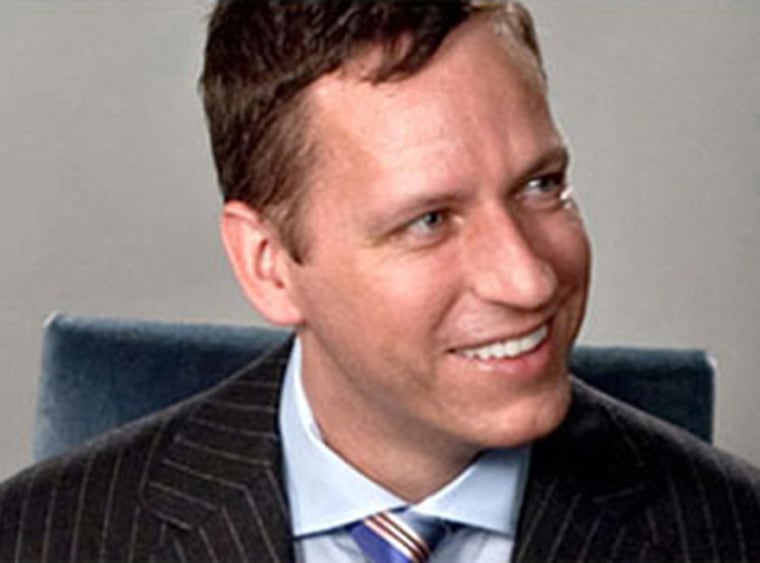There’s been a lot of talk recently about whether it’s worth it to go to college, given the high cost and potentially heavy student loan burden that comes with that diploma.
Now, an entrepreneur has launched a fellowship that aims to test that theory by paying people not to go to school.
The co-founder of online pocketbook PayPal, Peter Thiel, on Wednesday announced the winners of a fellowship that will pay nearly two dozen students $100,000 not to attend college for two years.
The catch? (There’s always a catch.) The 20 Under 20 Thiel Fellowship winners have to spend the time working on their scientific and technical innovations. They’ll be aided by a host of high-profile advisors who will teach the kids about disruptive technologies, mentor them and provide support and training (but don’t call it school!).
These aren’t just any 20 people, of course.
The foundation’s website said the winners include Andrew Hsu, who started at the University of Washington at age 12 and was, at age 19, pursuing his Ph.D. at Stanford when he left to work on his startup.
Darren Zhu is dropping out of Yale to pursue his interest in synthetic biology, and 19-year-old Eden Full has already founded a solar energy startup. Laura Deming enrolled at MIT at age 14 and is working on ways to extend the human lifespan by hundreds of years.
Thiel announced the fellowship plan last fall, in a press release packed with quotes from tech luminaries who extolled the virtues of dropping out.
Thiel himself seems fairly convinced that his experiment could change the world – or at least empower someone else to. In a statement announcing the contest last fall, he noted some of the major technologies that had been developed by people who dropped out of school, and predicted that his group would do the same.
“The Thiel fellows will change the world and call it a senior thesis,” he said in the statement.
